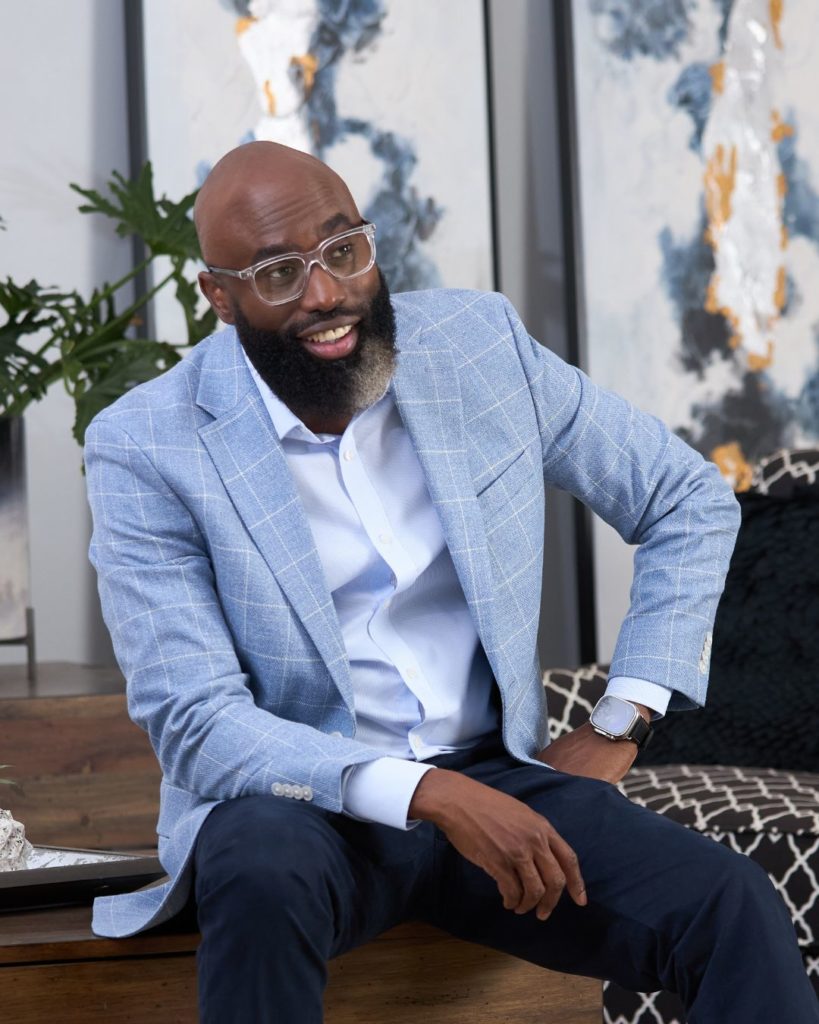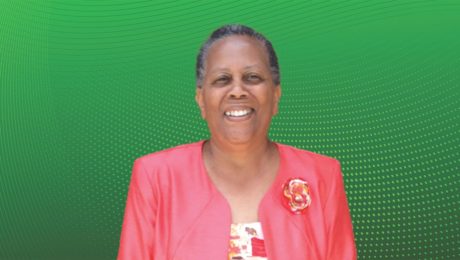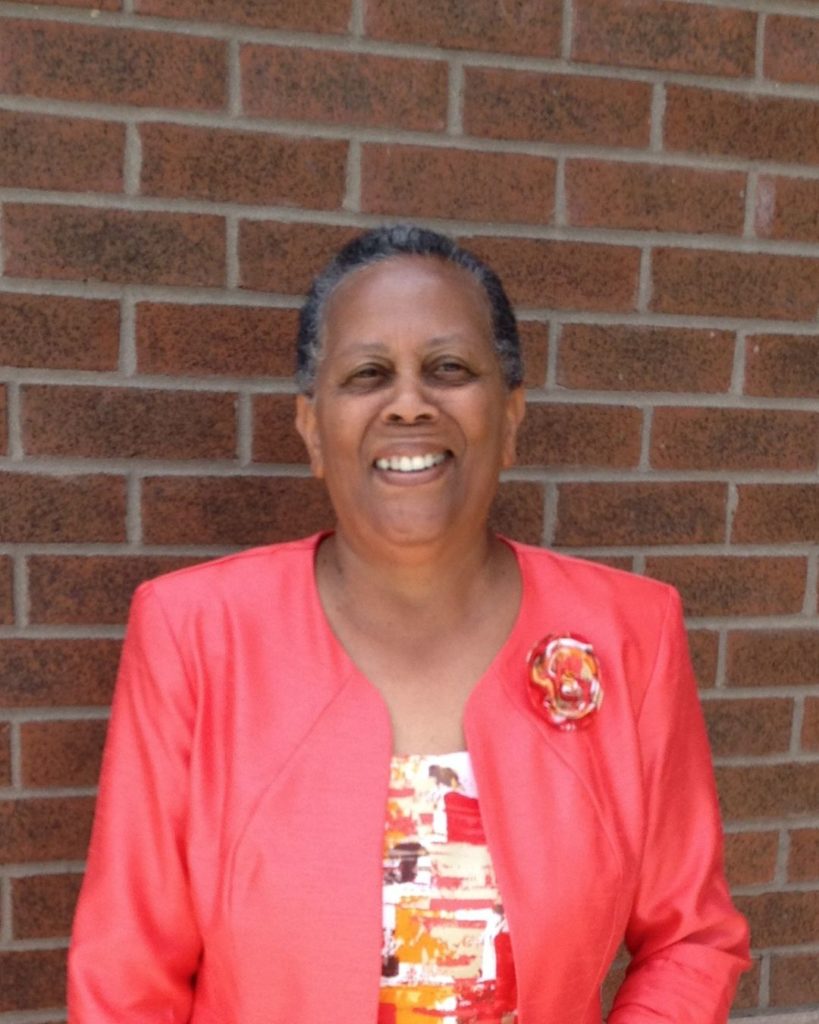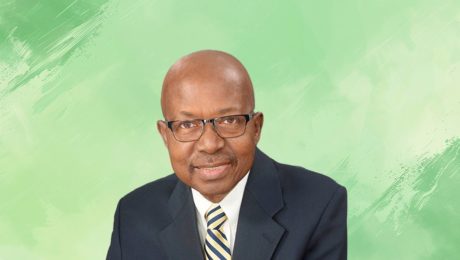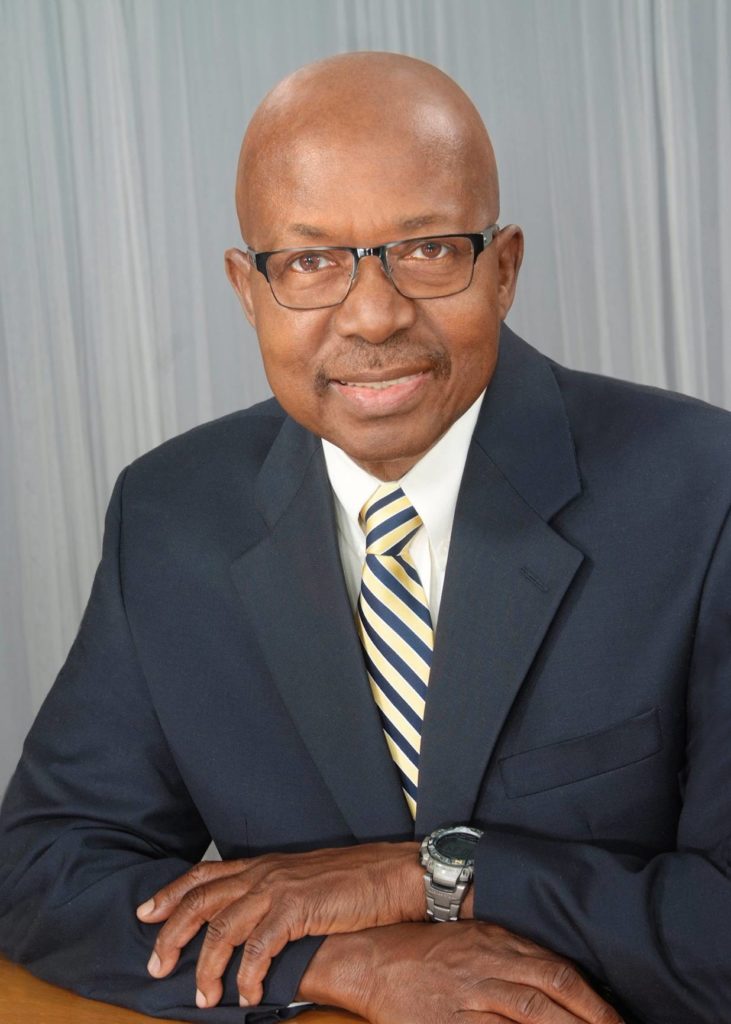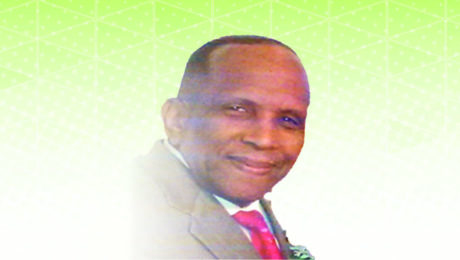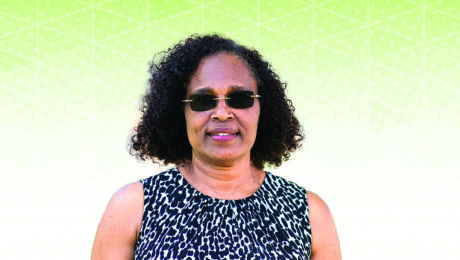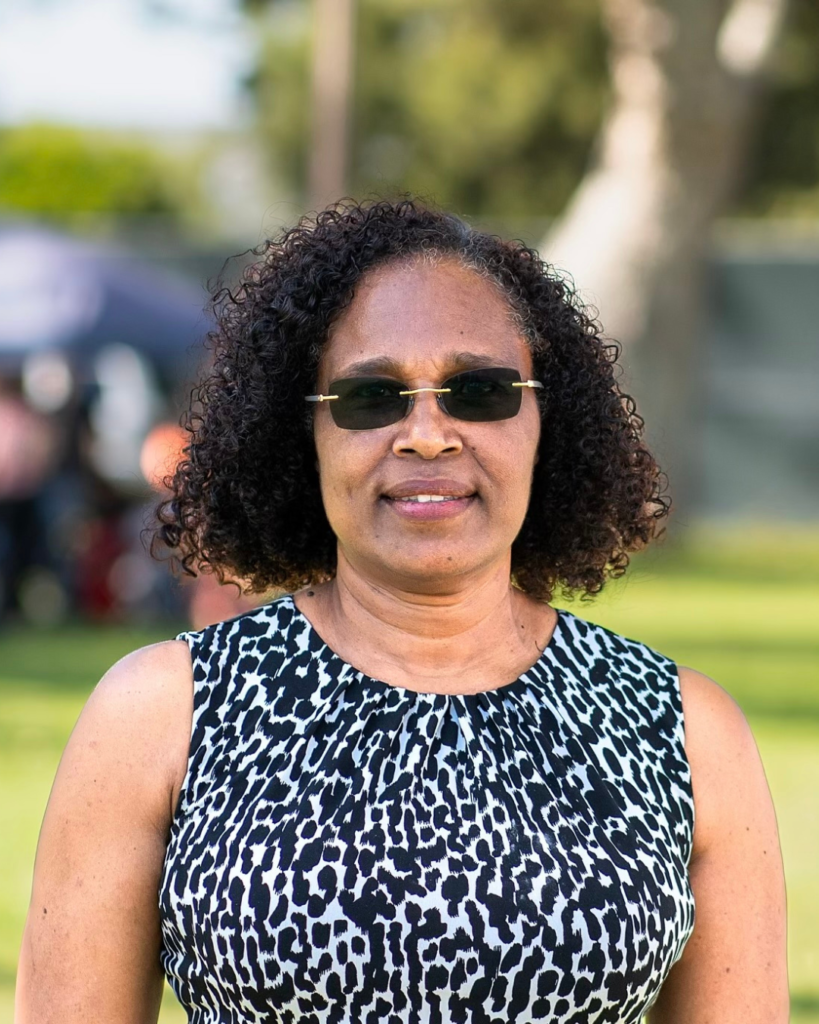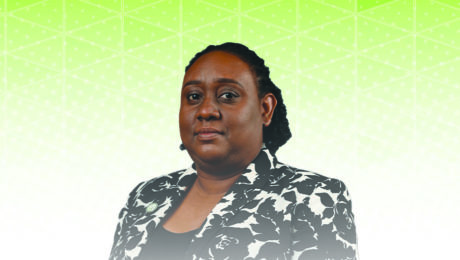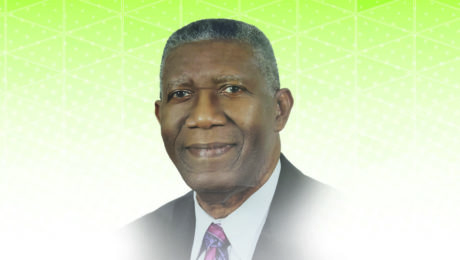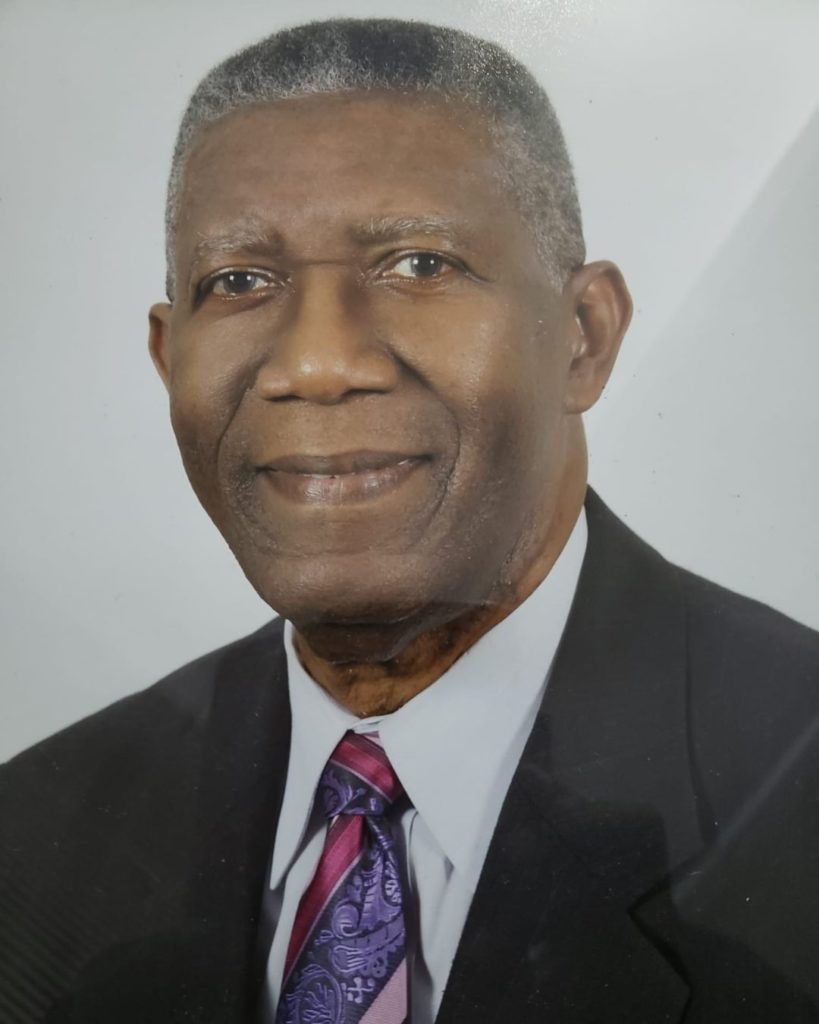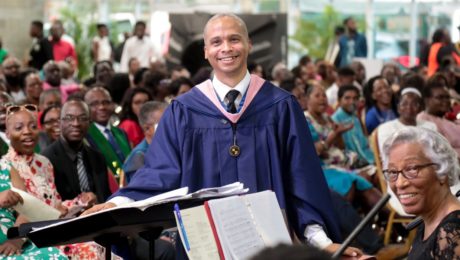Happy 50th Independence Anniversary Grenada!
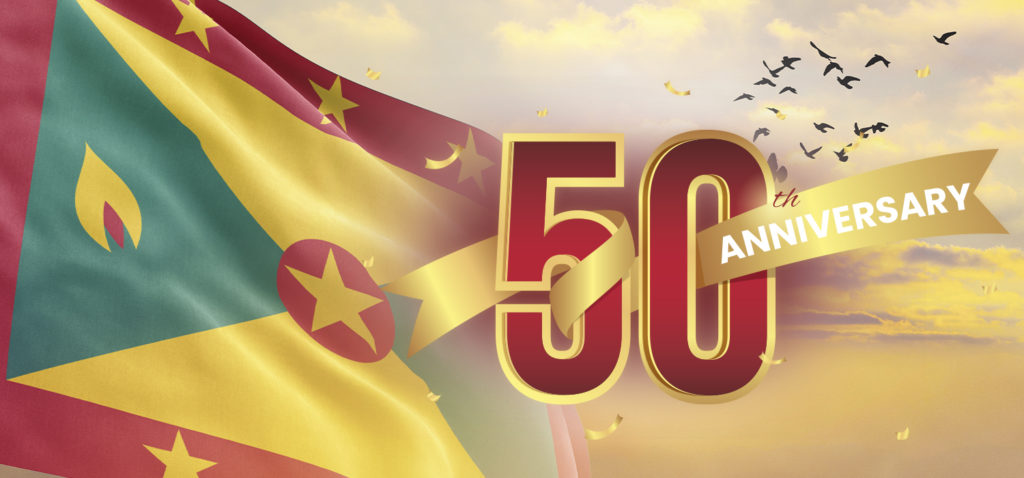
The University of the Southern Caribbean extends congratulations to the beautiful Spice Isle nation of Grenada on the grand occasion of its 50th Independence Anniversary!
As we join in celebrating this significant milestone, we reflect on the rich history and enduring connections between Grenada and our university. Our Grenadian students, faculty, staff and alumni contributes significantly to the USC community, embodying the spirit of excellence, resilience, and commitment to service.
We salute the people of Grenada for their achievements, progress, and vibrant culture. May this anniversary be a time of joy, reflection, and renewed dedication to the values that have shaped the nation’s remarkable journey.
We celebrate your accomplishments and look forward to witnessing your continued contributions to society.
May God bless you on this your golden jubilee.
Happy 50th Independence Anniversary Grenada!
- Published in Alumni, Corporate Communications, News, Office of the President
USC mUSiC Modulates to a new Key and Movement
By Hayden McKenna
Mr. Kerron Hislop, his wife Dr. Tracy Hislop and their son Asaiah are about to write a new chapter of their life journey in Southern California, USA. Kerron proceeds on leave to further his studies. For sure, this has a bitter-sweet taste for USC. His leadership, work-ethic and dauntlessness have come to be so valued here in miracle valley, that his departure will create a huge void. However, his personal and professional development can never be begrudged, and accordingly, the USC community wishes him the very best as he follows God’s leading.
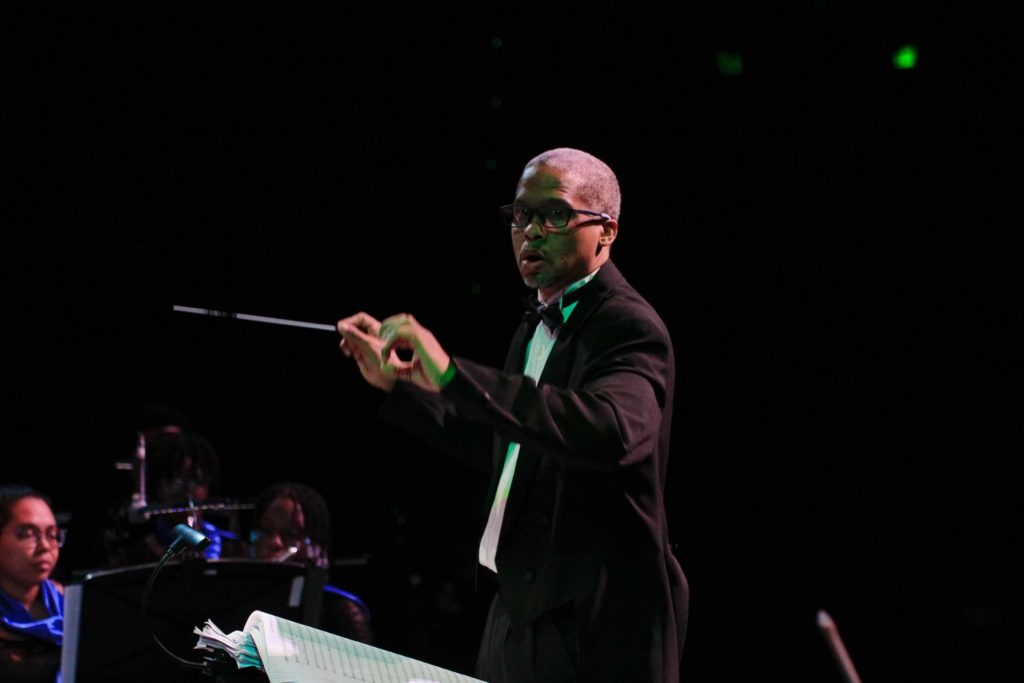
Music is an indispensable element to the sound of worship in most human cultures. In the Judeo-Christian tradition, the psalms comprise by far the largest identifiable section of the Old Testament. Even so, the psalms, as extensive as they are, are not the sole province of music in the Holy Bible. There is music elsewhere in both the Old and New Testaments
The school in the valley – through its various names and stages – has always been a place of worship. The completion of the implied syllogism is that music has and will always have existential significance to the sound, rhythm and cadence of life and worship in miracle valley. Music has provided a rallying point for engendering school spirit, collegial camaraderie and cherished memories of belonging to something great that long outlive the ceremonial toss of the tassel at graduation.
As consistently important as music has been to the fabric of USC over the 96+ years of its existence, there has been an uneven pattern of ebbs and flows in standards of achievement, subjective perceptions of attractiveness and popular appeal, classical rigour, and even institutional priority. There have been golden, silver and bronze ages, but never an accommodation for artistic ignobility, ambivalence or death.
From jump, Mrs. Inez C. Hamilton, a talented musician, composer, chorister, teacher and counsellor laid the foundation of music’s indispensability to campus life. Mrs. Hamilton – also the spouse of Professor R.S.J. Hamilton, our school’s first treasurer and third principal – first arrived on new-born campus of East Caribbean Training School (USC’s maiden name), on the second day of its life (August 28, 1927). By November of the following year, she directed what was perhaps the first off-campus showing of the music of the school at the Bi-annual South Caribbean Conference Session held in Port of Spain, Trinidad. Under Mrs. Hamilton’s stewardship, music became so important to the school’s curriculum, that the ability to sight-read music, became a graduation requirement. Mrs. Hamilton composed many songs, among them, was what – for its popularity – might well be informally regarded as the first, unofficial school song: “A Student I’ll Be”. There were several others that came off the tip of her prolific fountain pen.
Mrs. Inez Hamilton was not the sole contributor to the sound of music in the early days of the campus. Between the late 1930s and the first half of the 1940s, there were the creditable contributions to music leadership on the campus made by Mrs. C.E. Stenberg, who was succeeded in the mid 1940’s by Professor and Mrs. J.I. Crawford.
Students also had agency in contributing to the growth of the music culture of the campus over the years. There were early groups like a male quartet comprising of the very known names of Vasco Boyce, George Riley, Samuel Gadsby and Victor Mc Eachrane in the 1930s. In the early 1950s, there was a male nonuplet known as The College Heralds, which again featured students who would go on to accomplish great things in their careers. In the 1960s there was the memorable work of the original Golden Tones.
Those who know well and appreciate deeply the music of miracle valley, would undoubtedly hold up the 1970s and the leadership contributions and indeed the era of Dr. Vernon E. Andrews as a golden age for music on and off the campus. It was an age characterised by an emphasis on chorale music excellence that was memorialized by the production and recording of two outstanding long-playing albums, pressed on vinyl: Echoes From The Valley Volumes 1 & 2. The music of Caribbean Union College was taken to an unprecedented high. There was the fortunate co-mingling of inspirational leadership, with an affluent windfall of musical talent and giftedness on and about the campus – in the student body and otherwise – that formed the conditions for a perfect artistic storm. This period in my reckoning – perhaps to the particular delight of St. Lucian readers – was one of ‘the Pitons’ of our school’s music journey over the many decades.

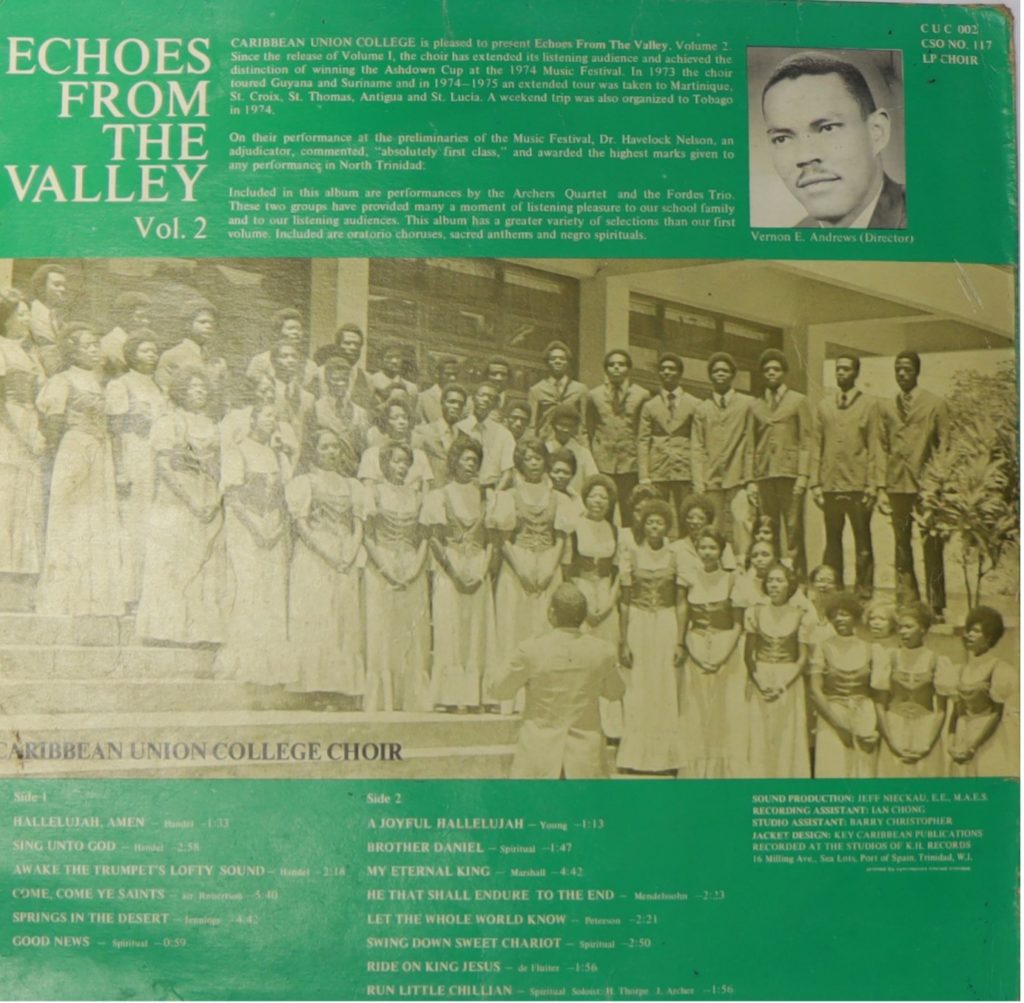
In the second half of the 1980s, student groups like Collegiates, led by Candyss Ann Davis, the Harmonettes, led by Donna Kirk and a handsome male quartet The Ideals, must come up for honourable mention among others. There was also a new iteration of the Golden Tones and Shalom during this period, both led by the late Vernetta Andrews.
In the 1990s, there were groups such as Voices in Praise (VIP) led by April Roach and later Selwyn Noel, David Jeffery and Cleon Richardson and Adoration led by Jason Max Ferdinand (of Aeolians and Jason Max Ferdinand Singers fame) and Darrel Daniel. There were many other groups and individuals who made their contributions to the beauty of campus music in that decade.
Undoubtedly the second of the twin peaks of ‘the Pitons’ has been the current seven-year period (2016 to 2023), under the inspiring and shrewdly entrepreneurial leadership of maestro Kerron Hislop. The case that can be made for this elevation is both redoubtable and compelling.
- For the first time USC offers a full baccalaureate degree in music with a Music Education emphasis
- For the first time there is an integrated University Choir and Orchestra as a standing fixture
- For the first time there is a self-sufficient institutional (USC) orchestra that plays all of the required music for marquee university occasions such as graduations and convocations
- There are multiple very active musical ensembles including, voice, a concert band and steel pan
- There is a decidedly entrepreneurial approach to music activities
Kerron Hislop’s first coming to Caribbean Union College was in the 1990s. He came as a seventeen-year-old Computer Science Major who dabbled informally in music. In his own words “music was the side-chick”. In his Tobago childhood, he had enduring piano lessons – as many middle-class Adventist children of that time did. He eventually prevailed upon his parents to free him of that drudgery – a decision he says he regrets to this day. With that liberation secured, he largely taught himself woodwind instruments – especially the clarinet, the saxophone and a few other things musical. At CUC, the music of the campus drew him in. Even without sound formal music training, he became instrumental in starting up the CUC Marching Band. His academic focus however was on computer science – “the main-chick”. But he was gradually becoming a young man of divided affections.
Even so, he did so well with his academic studies, that after his graduation he was employed at the college. In time he rose to the position of acting chair of the Computer Science Department in the School of Science and Technology at the University of the Southern Caribbean. Campus life constantly presented him though, with opportunities for musical expression, practise and growth. He emerged into a well appreciated and sought-after saxophonist. His leadership qualities prompted him to establish the band Purpose, which presented impressive covers of popular gospel and contemporary Christian songs to primarily church audiences. Kerron would later assume leadership of the Praise Team of the Caring University Church, contributing to ‘modernizing’ the sound of worship music at the church and negotiating and navigating through barriers to change. He felt the need to make an even greater contribution in the area of music, but was acutely aware of the limitations in his training and preparedness. He bargained with God, pledging to pursue music if he got the opportunity to study again.
In 2010, a combination of circumstances, that included the departure of his wife Tracy (in 2009) to further he studies in the US, the loss of his vehicle at gunpoint and God’s direction persuaded him to join his wife in Southern California and set about preparing himself for greater service in the area of music. He enrolled in La Sierra University, for the baccalaureate programme in Music Technology. Abetted by his previous training in computer science, he completed this four-year programme in two-and one-half years. While at La Sierra, University, he contributed to the curriculum development process for USC’s proposed baccalaureate programme in music, collaborating with then music chairpersons at USC Mr. Selwyn Noel and later Mrs. Jennifer Kharbteng.
After completing his studies at La Sierra University, Kerron enrolled in California Baptist University (CBU), where he successfully pursued two master’s degrees in the areas of Music Education and Saxophone Performance respectively. CBU as its name betrays, is a faith-based university. This was a point of comfort for Kerron. According to him, CBU has one of the largest music programmes in the Southern California area. The overall marketing strategy of CBU relies heavily on its music products and footprint. Students are exposed to a wide range of opportunities for musical performances in various ensembles with the University Choir and Orchestra is the biggest and most prestigious. Kerron was not only able to receive the training that he needed to later do miraculous work in miracle valley, but the structure and business-like approaches he was exposed to at CBU, were worth emulating.
While still a student in Southern California – and becoming a father there too – Kerron still found the energy, time and drive to spearhead the Build-a-Band Project. This was an aggressive campaign that pursued donations in cash and in kind to build the inventory of orchestral and classical instruments and other equipment necessary to re-create at USC, what he was experiencing at CBU. His passion was unquenchable. With the assistance of his wife Tracy, USC alumni in Southern California and elsewhere and countless others from whom he could persuade generosity, he collected instruments and equipment to the extent that a forty-foot container was required to ship them to Trinidad.
In 2016 Kerron, his wife Tracy and their young son Asaiah returned to USC. A vacancy for the chairmanship of a beleaguered Music Department that was threatened with closure and reduced to a skeletal staff, saw him immediately tossed into the position of Co-ordinator. Motivating his troops, finalizing the details of how to execute the curriculum, finding storage for the large stash of instruments and equipment he had mobilized and most importantly getting students and increasing the visibility of the department were time and energy-consuming priorities for him, even as he and his family re-acclimatized to the pace of life in Trinidad and Tobago.
There were other challenges too. USC’s new music programmes did not attract GATE funding. This challenge was converted into an advantage. According to Kerron, the optimistic mindset was and continues to be that “people are willing to pay for quality”. USC was constrained to work doubly hard at quality assurance. In order to provide students with financial aid, scholarships and opportunities to earn, USC mUSiC – the hip alternative moniker for the ‘Music Department’ – has developed entrepreneurial sophistication. The mUSiC Academy was established to offer and manage all non-academic music instruction (music lessons) to members of the public who have an interest. The mUSiC Academy is student driven and led. Music Majors offer the bulk of the instructional services and share in the profits which helps them to meet their own tuition obligations. The mUSiC Academy has also taken on the management and execution of music programmes for primary and secondary schools and church congregations.
Although USC’s music degree was originally designed to offer students the option of four emphases, namely Music Education, Church Music, Music Performance and Music Technology, accreditors and market conditions dictated that only Music Education emphasis could be started in 2016. Even with that limitation, the design of the curriculum is as such that students are required to participate in ensembles each semester with a rehearsal schedule of four to five hours each week per ensemble (plus performances). Students are also exposed to techniques in all of the major instrument families and apart from their primary instrument. They are required to achieve acceptable competence in two secondary instruments. A very busy public performance schedule and recitals also ensure that the USC programme is well-rounded – far more so than any of the rival GATE-funded programmes offered locally by competitors. Kerron also chooses to see USC Christian faith-tradition as offering it a niche market that other local competitors may not be able to readily access. Challenges have been converted into differential advantages.
The COVID 19 pandemic presented USC mUSiC with the alternative to roll over and die or to innovate, survive and grow stronger. Predictably, USC mUSiC chose the latter. But it was not easy. The difficulties of abruptly adapting a programme that is so reliant on in-person instruction and assessment, ensemble (group) rehearsals and performances to remote learning and interaction cannot be overstated. Yet USC mUSiC got it done, and actually experienced growth in the number of Music Majors enrolled in the programme during the lockdowns imposed by the pandemic.
Perhaps the most outstanding proof of life that USC mUSiC offered during the darkest days of the pandemic, was the much-acclaimed virtual University Choir and Orchestra product that published a world-class rendering of the hopeful song “A Day Will Come” With 11K views to date, this video has set a record for the viewership of USC content. This highly successful project was the brainchild of Anton Charles, a USC computer science graduate and now senior Music Major, who Kerron regards as “easily one of the most talented persons” on the campus. The success of this first virtual UCO production, has led to the production and release of at least six others – with others already completed and waiting for release at the launch of the forth-coming USC mUSiC album.
Prior to and after the lockdowns of the pandemic, USC mUSiC in collaboration with creative partners and sponsors offers what has now emerged to be the much-anticipated, yuletide season, production titled “The Greatest Story” (TGS). TGS is a gala fundraising concert production that features enthralling music and drama that spare no effort amaze. Also packaged for a pay-per-view audience, the proceeds of this classy annual production go primarily to funding scholarships for Music Majors.
Mr. Kerron Hislop, his wife Dr. Tracy Hislop and their son Asaiah are about to write a new chapter of their life journey in Southern California, USA. Kerron proceeds on leave to further his studies. For sure, this has a bitter-sweet taste for USC. His leadership, work-ethic and dauntlessness have come to be so valued here in miracle valley, that his departure will create a huge void. However, his personal and professional development can never be begrudged, and accordingly, the USC community wishes him the very best as he follows God’s leading.
Kerron is sure that the accomplishments in these seven years of plenty with him the helm of USC mUSiC would not have been possible without God’s providence, the love and boundless support of his family, his colleagues in and the students of USC mUSiC, the School of Education and Humanities in which the Department of Music resides, the support of USC’s administration USC alumni and friends and a supportive community. It has been a good run and he expects great things in the future for and from USC mUSiC.
Kerron passes on the baton of leadership of USC mUSiC to the very accomplished and experienced Mr. Boyd Gibson. USC will always be grateful for the fulsome contributions Kerron and his family have made to the beautiful sound of miracle valley. We look forward to jamming together again in the valley, on this side of heaven. Farewell for now.
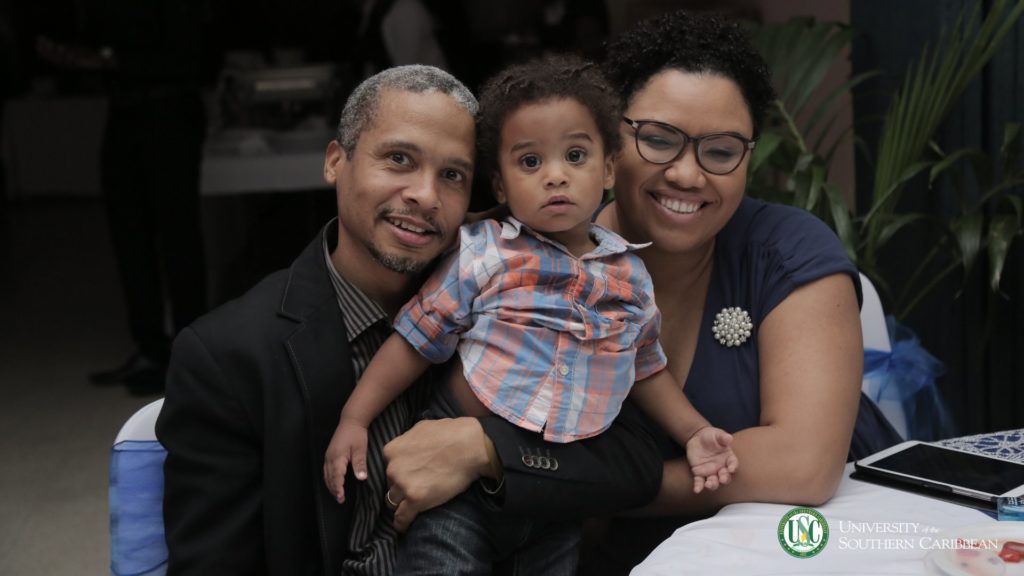
See USC mUSiC content here:
URL Videos:
https://drive.google.com/file/d/1fTMGByT8JamKS8N2GQV5WMWZzyl1DDfW/view?usp=drive_link
- Published in Alumni, Corporate Communications, News
USC Alumni among the 373 Candidates in Local Government Elections in Trinidad
Going “beyond excellence” and transforming “ordinary people into extraordinary servants of God to humanity” are the aspirations that are central vision and mission of the University of the Southern Caribbean. These aspirations are embodied in the motto and mission statement of our university. Beyond rhetoric, these words and the values they reference, confer upon USCians a duty to ceaselessly pursue excellence, not as an instrument of personal and financial aggrandizement but rather, as vital preparation for meaningful service, to real people with names and faces and needs.
Consonant with this, the University of the Southern Caribbean salutes members of its alumni, who are now offering themselves for public service as candidates aspiring to become local government practitioners in the LGE 2023 cycle in Trinidad. Electoral politics is by no means new to the smorgasbord of service-oriented careers that USCians have put their valuable education, professional experience and good characters to. USCians can be found in the municipal and parliamentary chambers of several countries across the Caribbean region. A USCian mayor, prime minister or president may not be too far off – who knows?
USCians can also be found giving quality service in other areas of the government superstructure and the public service, that do not require elections for entry. They are in this nation’s senate, the foreign service, officers of the court, and in a wide range of civil service positions. A USCian currently presides over the parliamentary chamber of the Tobago House of Assembly. This is a matter of extant fact!
In the present LGE cycle, there are five USCians who have offered themselves as candidates. They are: Ms. Aviea Isaac, (Class of 2018), Mr. Emmanuel Pierre, (Class of 2017), Ms. Karina Nanan (Class of 2016), Mr. Kadeem Graham, (Class of 2013) and Pastor Courtney Francois, (Class of 2005).
We had the opportunity to directly interact with two of the five USC alumni (one male and one female) whose names will appear on the ballot on next Monday. The two belong to opposing political parties and are contesting electoral districts in different municipalities.
When asked about what attracted them to electoral politics one candidate said, “I have always been a believer in service over self, I would have spent the last 7 years as a public servant in local government and found myself just always trying to find better solutions to everyday issues. So, with my love for service and appreciation for the local government fraternity, politics was a natural flow… it is an outlet to help the people from a different perspective.”
The other candidate indicated a deep love for active community service and has a successful track record of over two decades of interventions to improve the quality of life of particularly the underprivileged. Entry into electoral politics was seen as a means of upscaling the capacity to improve the lives of people.
When confronted with the question of resource scarcity and the seemingly unlimited demands that are made on councillors by their burgesses, both respondents spoke of finding creative ways to grow the resource pool available to councillors and to more efficiently manage what is available. One of the candidates emphasized the importance of educating the public on the true roles and functions of local government, their rights, privileges and obligations and knowing how to de-conflate local issues from national issues, so that the legitimate demand for public goods is rightly placed.
When asked about the enabling role studying at USC played in developing their public spiritedness, leadership confidence and service orientation, both candidates testified that they benefitted enormously. One candidate recalls participating in student government. She served a one-year term on the executive of the Associated Student Body as Director of Social and Cultural Activities. She also assisted in the design of “Club Soc Sci” – an academic and social club for students of the School of Social Sciences. She was also selected by the university as one of its representatives for the 13th National Youth Parliament. At the youth parliament, she was given the portfolio of Prime Minister and Member for Tobago West. She also regards with high value the spiritual ethos of the university and said that “it has really helped in times of difficulty… as a young person when you are trying to be more grounded and more stable putting that centre focus on God really helps get you through difficult things in life…Your faith is a really big part in public life so I am thankful for my USC experience for that.”
The other candidate shared that his Caribbean Union College/University of the Southern Caribbean experience contributed invaluably to preparing him for the hard work of campaigning and the even harder work of representation if elected. He shared that he entered CUC in the days when the work-study programme and working an industrial year were normative. He confessed that it taught him discipline, sharpened his goal-orientation and built habits of multi-tasking, industriousness and hard work. Recalling our previous institutional motto “A Light to the Caribbean”, he said that “politics can be a very dark place…you have to bring your light into that arena so that people could have a clearer vision of where to walk”. He advised fellow USCians that “whether you are in the police service, nursing service, fire service, teaching service, wherever you are – and politics is not exempted – we need to find more of ourselves in there so that when we sit down at the table, we can bring light to the discussion.”
Our university salutes these USCian candidates and wishes them and USCians everywhere success in their aspirations and lived endeavours to improve communities, nations and a world that is desperately crying out for positive redirection. You can hear those cries if you are truly attuned. Listen.
- Published in Alumni, Corporate Communications, News


